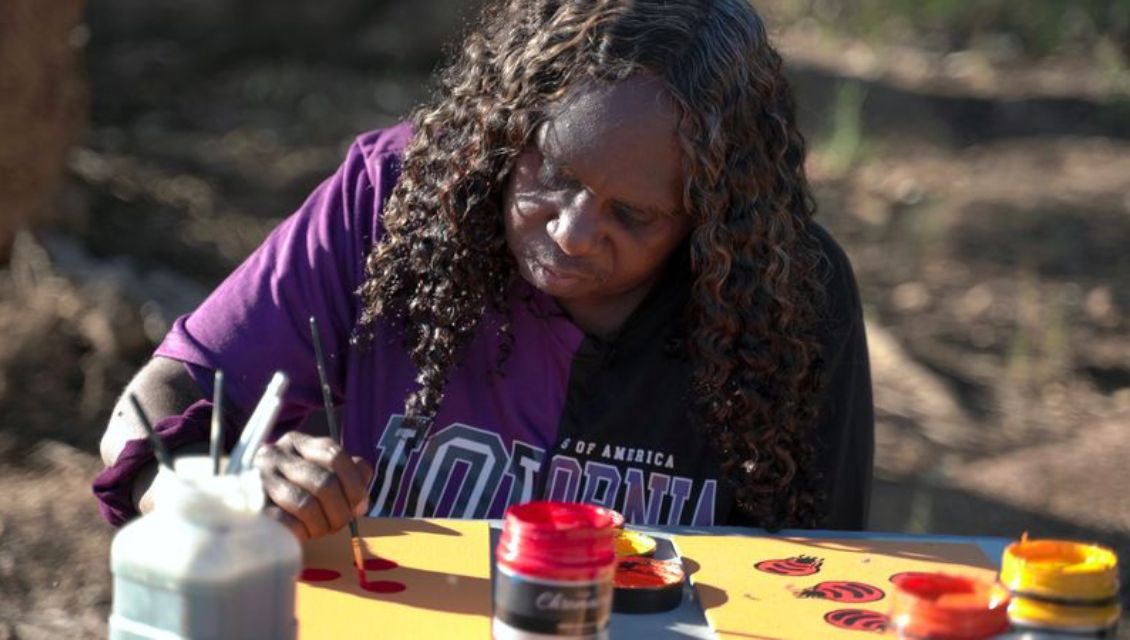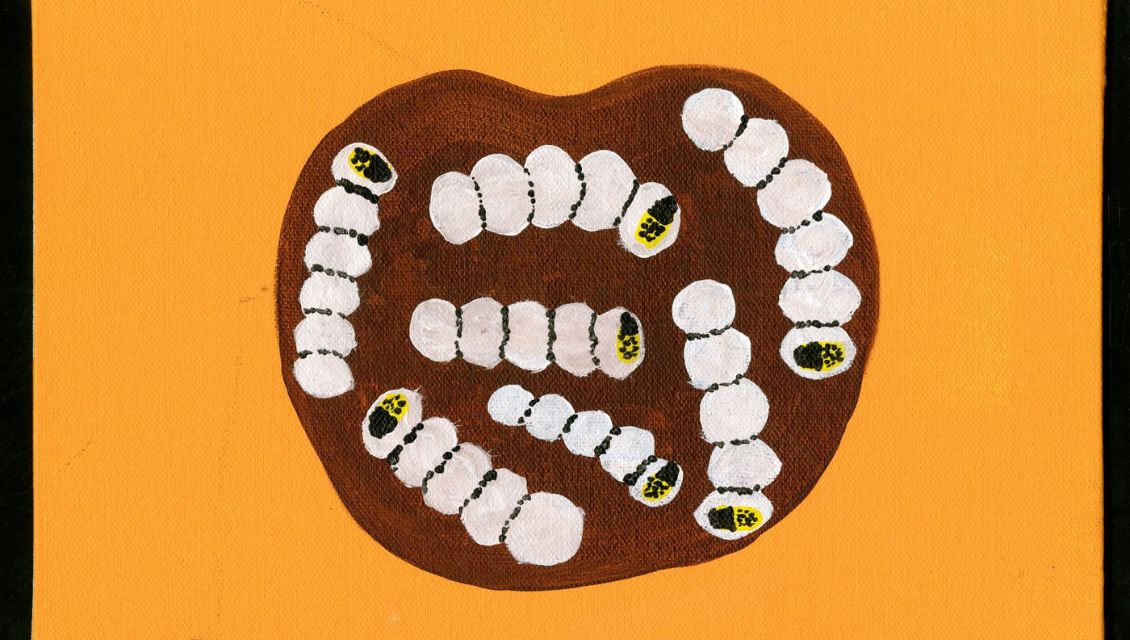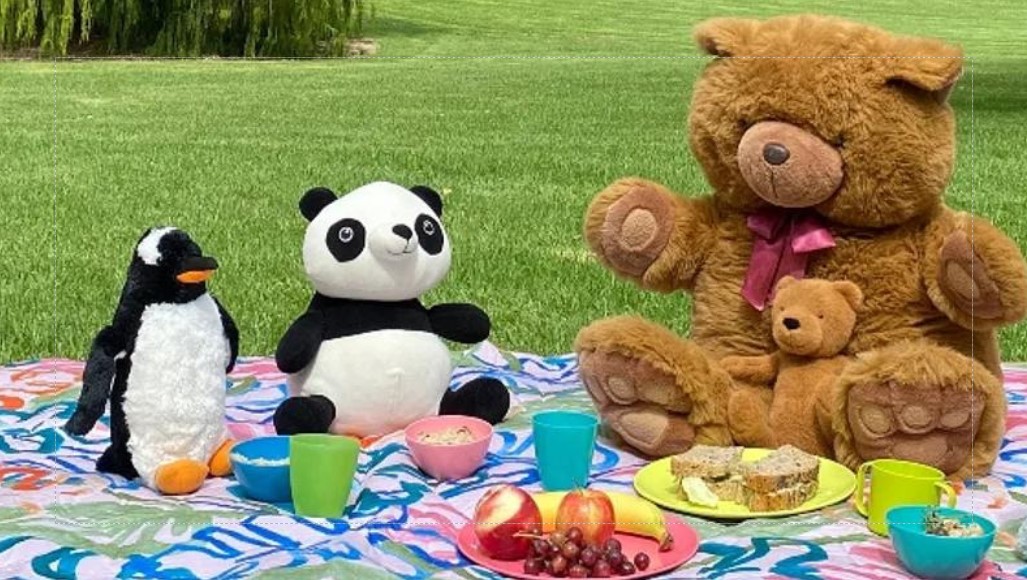
The South Australian Museum and the University of Adelaide’s Mobile Language Team have launched Yankunytjatjara Wangka!, the second exhibition in its annual Keeping Ancestral Voices Alive series.
Keeping Ancestral Voices Alive is at the forefront of South Australia’s response to the UNESCO International Decade of Indigenous Languages 2022-32.
Launched as part of Tarnanthi Festival of Contemporary Aboriginal and Torres Strait Islander Art, the exhibition showcases original artwork by Coober Pedy-based Yankunytjatjara artist Myra Kumantjara that illustrates the language of her community.
An increasing number of Australia’s Indigenous languages are undergoing revival and maintenance by dedicated communities of speakers and learners across the country. Just under half of the 47 languages of South Australia are undergoing some form of revival or maintenance. Yankunytjajara is one of the stronger languages. While it is spoken across Australia, its traditional homeland is the Aṉangu Pitjantjatjara Yankunytjajtara Lands in north-western South Australia and across the border in the wider region surrounding Uluru.
In 2021, the South Australian Museum, the Mobile Language Team (University of Adelaide) and Aboriginal communities from across South Australia came together to develop the Aboriginal Living Languages South Australia Cooperative (ALLSA). This project seeks to unlock South Australian Museum collections to creator communities and to facilitate the creation of new cultural works, including online language learning activities, storytelling, visual art and exhibitions.
Crucially, ALLSA aims to increase access to language resources for communities, schools and families and to promote SA’s rich language heritage.
Following the first exhibition in the series, Arabana Yanhi! Tanganekald Yan! in October 2022, this latest installment in the Keeping Ancestral Voices Alive series continues to celebrate and share how Aboriginal communities are continuing to maintain, transmit and teach their languages across communities and country.
Mobile Language Team Aboriginal Co-Manager and Senior Aboriginal Language Worker Karina Lester said the exhibition reflected this important work.
“Learning Yankunytjatjara is a holistic and sensory worldview, this exhibition shows the creative ways language can be used with technology to keep language strong,” Ms Lester said.
creative ways language can be used with technology to keep language strong,” Ms Lester said.
Ms Kumantjara grew up in Iwantja (Indulkana) Community on the Aṉangu Pitjantjatjara Yankunytjatjara (APY) Lands, and currently works between Coober Pedy, Iwantja and Oodnadatta.
As an Aṉangu Education Worker herself, Ms Kumantjara has a strong passion and desire to create resources that help Aṉangu live and work between two languages. Designed as educational flashcards, her artworks illustrate important pieces of life and Country, including waru (fire), nyii-nyii (zebra finch), tjiwa munu tjungaṟi (grinding stones) and mangaṯa (quandong).
“When kids are competent and confident in two languages, they find purpose and meaning in life,” Ms Lester said.
“This exhibition is about helping kids to read and write Yankunytjatjara.”
Ms Kumantjara said these artworks were inspired by her own work in the classroom.
“The flashcards are for kids to see, read, write their language, and to help young [Aṉangu] teachers build confidence in the class,” she said.
This language-immersive exhibition puts Yankunytjatjara language at the heart of the content, with all exhibition panels solely presented in Yankunytjatjara with English translations available via QR codes (a large-print English guide will also be available).
Co-curated by Yankunytjatjara women Ms Kumantjara and Ms Lester, this exhibition asks audiences to leave English at the door and to be immersed in wangka (language), to hear and see the strong Yankunytjatjara language.
Yankunytjatjara Wangka! Keeping Ancestral Voices Alive is open daily 10am-5pm until 31 March.


